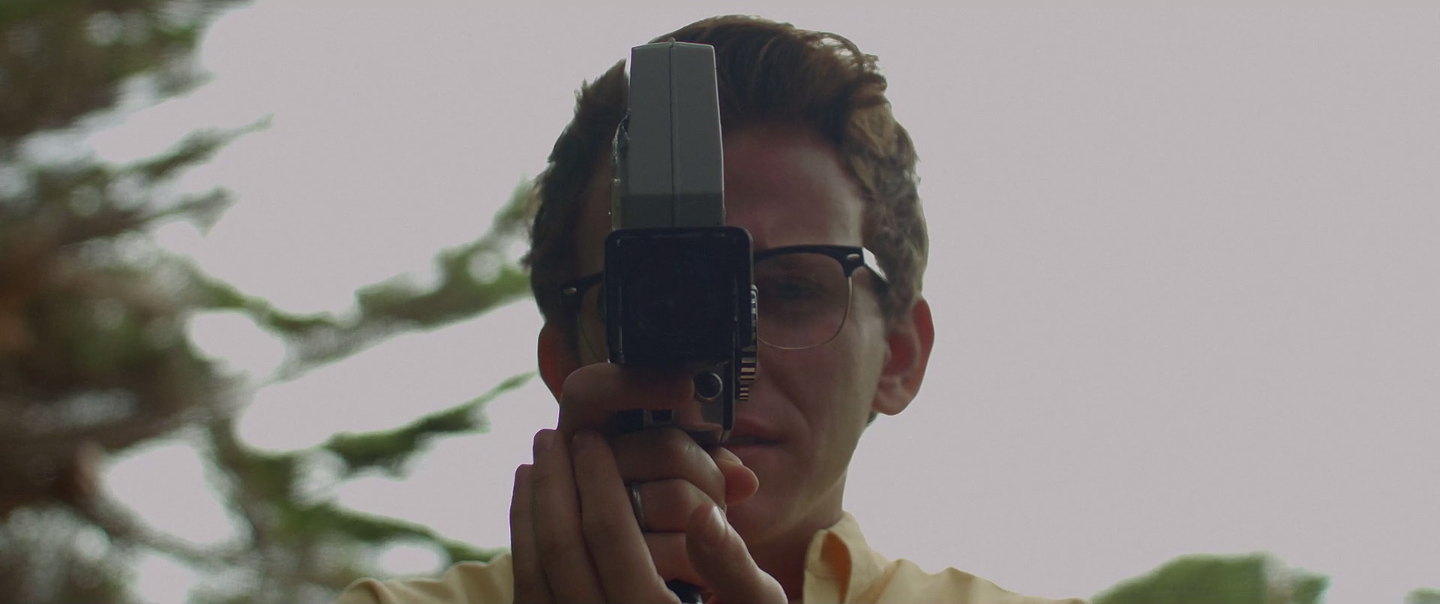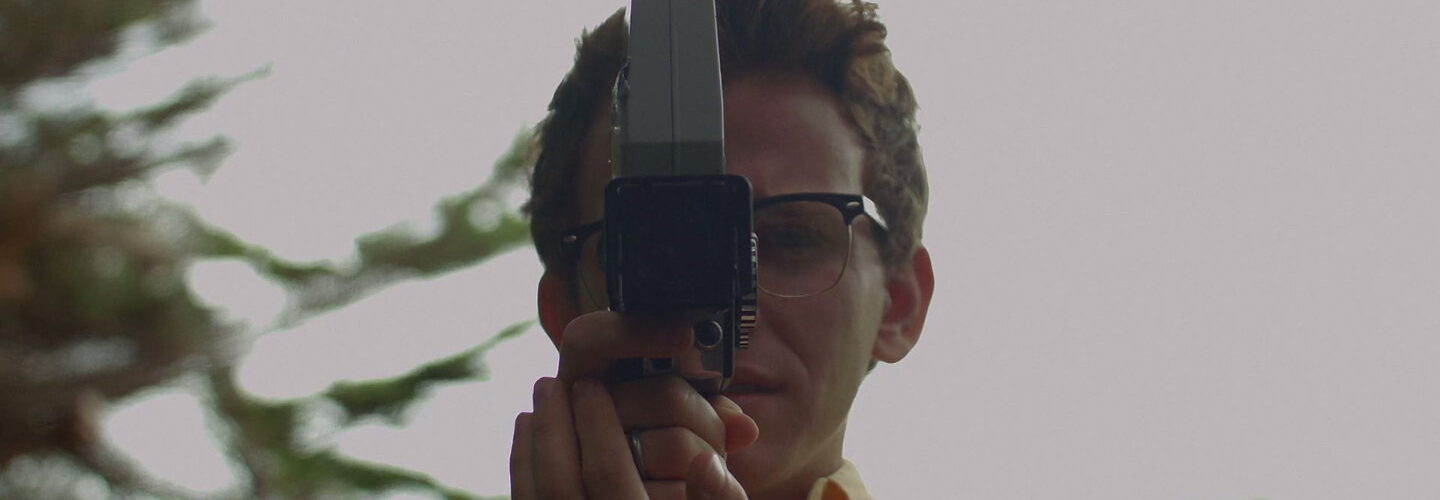
Shot in the true spirit of an indie production with a tiny crew and minimal gear, Anthony Aguiar’s short film Cypress slowly reveals itself to be a ghost story that’s hard to pin down as it traverses genres as the narrative unfolds. We invited Aguiar to lift the veil on his otherworldly production.
How did you come up with the concept for Cypress?
So I’ve always been fascinated with ghost stories and films that play with the idea of the magic of cinema; for example Woody Allen’s The Purple Rose of Cairo. I’ve also been interested in the Super 8mm format and the mysterious qualities it has, so that also influenced the writing of it.
As a dialogue free short your lead actor Kyle Jones only has his facial expressions and physical movements to convey his thoughts and feelings. How did you find him and how did the two of you work together to help him achieve that performance?
Well, I found Kyle Jones in locally produced web series and something about him really caught my eye. He has a wonderful almost timeless look to him and I knew right away he was the type of person that I wrote for in the short film. With both actors we didn’t spend a lot time talking about the characters in pre-production because it was really on the set where we got to work out and try different things. It is also important to note that we shot the film without sound, it was all recorded later. So I had the great opportunity to direct both actors during the actual filming of a take. So in that way, it was actually made like an old silent film.
What cameras did you use to shoot the dual formats of Cypress?
We shot in two days with only a two man crew. It was truly a very low budget short film. I shot on the Blackmagic Cinema Camera because it gives you this blank canvas to work from, so in post-production you have this really flat looking image that lets you really create a specific look. I wanted Cypress to have a 70s vintage feel to it. I also liked the harshness of the Super 8mm style look and the contrast and combination between the handheld footage and the more composed scenes.
We never quite know where we’re going in the film – at times it feels equally plausible that we could be in the midst of a mystery or horror & even the ending remains open ended. Was that fluidity/openness present through the script iterations?
It’s really kind of you to say that. I wanted the audience to not know if it was a horror during the first couple of minutes and I tried to keep it mysterious by using caps of silence for when the music first comes in. I think a horror film can be made from this type of story/setup, so it was really fun playing with that idea in the first couple of minutes. The short’s ending was always suppose to be ambiguous – I’ve always felt that an ambiguous ending is really a gift from the director to the audience, in a way like saying “I trust in you to complete the story”. Of course, I have my own meanings and interpretations, so it is so great to read comments from people coming up with their own ideas of what it means or a backstory.
I’ve always felt that an ambiguous ending is really a gift from the director to the audience.

The tonal shifts are really well handled as we move through the film – were they something you had to feel your way round in post?
Thank you for that! Yes, those shifts were really planned out in the script but it was really in post-production using composer Red Bennett’s music that I was able to make those ideas play out.
Speaking of Red Bennett, his light piano score is a perfect accompaniment to the naturalistic and camera sounds of Cypress. Were there specific musical cues you provided to Red? How did the two of you work together?
I love Red’s music, he is a wonderful and talented composer. When I was writing the screenplay I was listening to a lot of music by the Estonian composer Arvo Pärt. So during post-production I began sending Red samples of his music to give him an idea of what I was looking for. I’ve always tried for the music to be like a character in the film, like a subtle commentator. So we collaborated and shared notes to try and mold the music to fit the different tones of the short film. It’s always like a little present when I get to hear an idea or rough draft from Red, he is a great collaborator.
Any future film plans you’d like to share?
So probably, like most directors you interview say, I’m working a on feature film and I’m also trying to work on different types of longer form storytelling. You can follow my projects on twitter or at my website.


